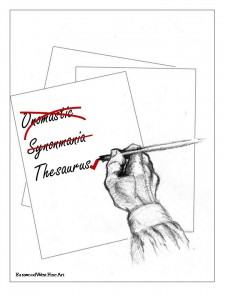The Late English Language
Posted in General on May 20th, 2010 by Eugene Finerman – 7 CommentsIn case you missed the obituary….
POSITION TITLE:
Director, Enterprise CommunicationsREPORTING TO:Assistant Vice PresidentCorporate RelationsCORPORATE PROFILE:The Allstate CorporationNorthbrook, ILThe Enterprise Communications function (in the Corporate Relations Department) works to strengthen Allstater engagement and drive alignment with Allstate’s corporate priorities. It accomplishes its work through a talented team of communication professionals and a best-in-class enterprise communications system – with cutting edge and interactive vehicles and timely and strategic content.The objective of the Enterprise Communications function is to:
- Serve as a catalyst for culture change throughout the organization
- Provide strategic counsel to executives re: Allstater engagement, consistent execution of customer experiences and internal reputation building
- Ensure employees have a clear line of sight between their accountabilities and our corporate strategy and vision
- Drive understanding and alignment of Allstate’s vision, strategies and tactics with employees and agency owners, and to embed these principles in actions
- Improve Allstate’s reputation with internal stakeholders through strategic communications designed to enhance employee and agency owner engagement for Allstate’s vision, priorities and strategies
- Oversee communication channels for effectiveness and efficiencies
- Enable free-flow of information and dialogue throughout the company (up, down, sideways, outside in.)
AREA OF RESPONSIBILITY:In alignment with corporate goals, specific responsibilities for the Director, Enterprise Communications will include:
- Enterprise Communications Strategy development, integration and execution including specific work streams to inform and engage Allstate employees and agency owners with Allstate’s vision and strategy
Ongoing delivery of Allstate and industry news, strategies and information
- Proactive management of emerging technology, social media and traditional communication vehicles
- Cross-functional integration with business units, Marketing, Government Relations, Investor Relations, etc.
- Developing and implementing best-practice internal stakeholder research to understand employee perceptions, alignment and expectations
- Embedding Allstate’s vision across the enterprise to drive understanding, and enhance loyalty, employee alignment and engagement with enterprise values, purpose and business goals
- Communications consultation with Allstate leadership on business actions and decisions
- Ensuring successful implementation of Allstate’s Living Archives
- Building and developing a best-in-class Enterprise Communications team
Let me summarize this: the Enterprise Director will enterprise the enterprise. You also may be required to feed the living archives. (Imagine the poor soul who has been ordered to memorize this job description.)
The greatest threat to intelligible English is not immigrants or slackard youths: their pidgin mutations actually add a vigor that keeps a language alive. No, the danger to English is from those who use language as a cryptic incantation, whose obscurity presumably measures its importance.
We have come to expect this verbal opacity from government: bureaucrats would rather you didn’t know what they meant. MBAs try to avoid the intelligible, for fear it might be incriminating. Sociologists offer jargon when they have nothing to say. Of course, the Human Resources, in its crusade to suppress any hint of joy and light in the world, torture language into an impenetrable code of verbational nounalizations.
Of course, if the Enterprise Director gets to wear a Starfleet uniform, who wouldn’t want the job.
p.s. Let’s not forget the historical significance of this day: https://finermanworks.com/your_rda_of_irony/2008/05/20/mitre-makes-righter/
